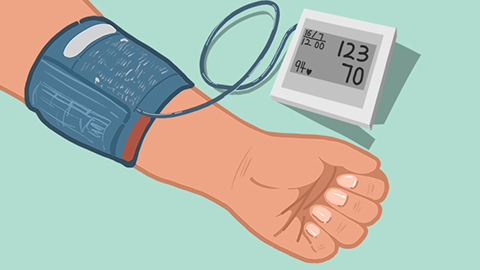Is a blood pressure reading of 150 mmHg (systolic) and 100 mmHg (diastolic) serious?
Generally speaking, high blood pressure refers to systolic pressure, while low blood pressure refers to diastolic pressure. Whether a blood pressure reading of 150mmHg systolic and 100mmHg diastolic is serious depends on the patient's specific condition. If this blood pressure level is only occasionally measured, it usually is not serious; however, if the blood pressure remains consistently at this level and is accompanied by discomfort symptoms, it may be more serious. If experiencing any discomfort, timely medical consultation is recommended. Detailed explanation is as follows:

If a blood pressure of 150mmHg systolic and 100mmHg diastolic is measured only occasionally and the blood pressure is generally normal, the situation is relatively less serious. It may be caused by factors such as stress, anxiety, or strenuous exercise. In such cases, blood pressure can return to normal through stress relief and rest, and long-term health effects are minimal.
However, if the blood pressure remains consistently at this level and is accompanied by significant discomfort symptoms such as persistent dizziness, headache, chest pain, or difficulty breathing, it could be more severe. Long-term hypertension can damage multiple organs and systems in the body, including the heart, cerebral blood vessels, kidneys, and eyes, increasing the risk of cardiovascular and cerebrovascular diseases such as angina pectoris, myocardial infarction, cerebral infarction, and cerebral hemorrhage. At this point, the patient needs timely medical attention. Under a doctor's guidance, comprehensive examinations and evaluations should be conducted, and medications such as Irbesartan Tablets, Enalapril Maleate Tablets, or Sustained-Release Nifedipine Tablets may be prescribed for treatment.
To avoid unnecessary harm to the body, it is recommended that blood pressure management be conducted under the guidance of a qualified physician. In daily life, maintaining healthy lifestyle habits, avoiding excessive fatigue, and keeping a calm state of mind can help control blood pressure. Additionally, regular medical check-ups are important for early detection and management of hypertension.




